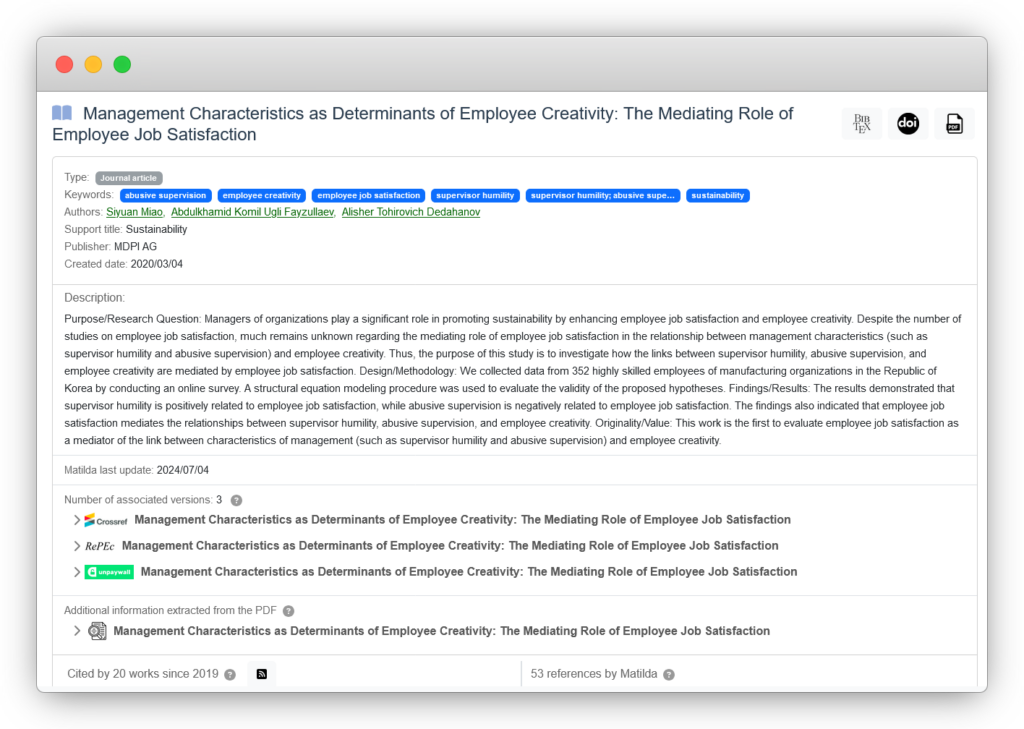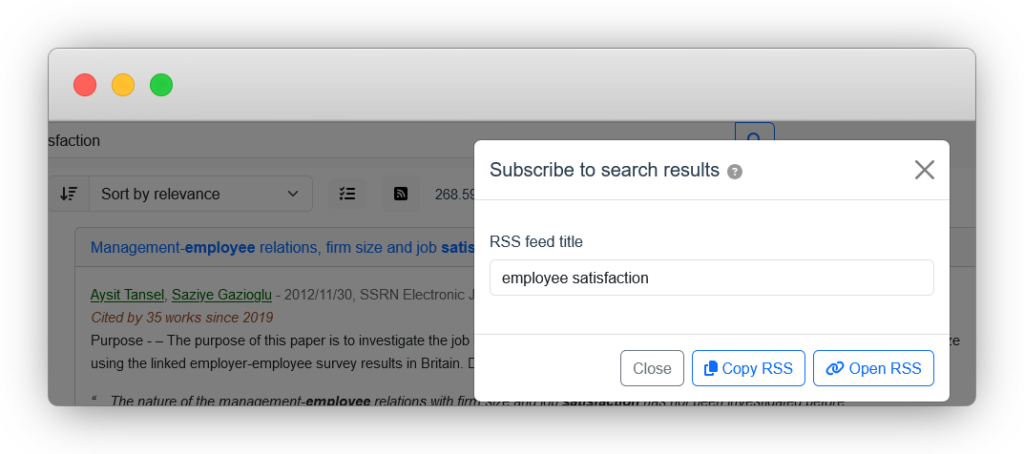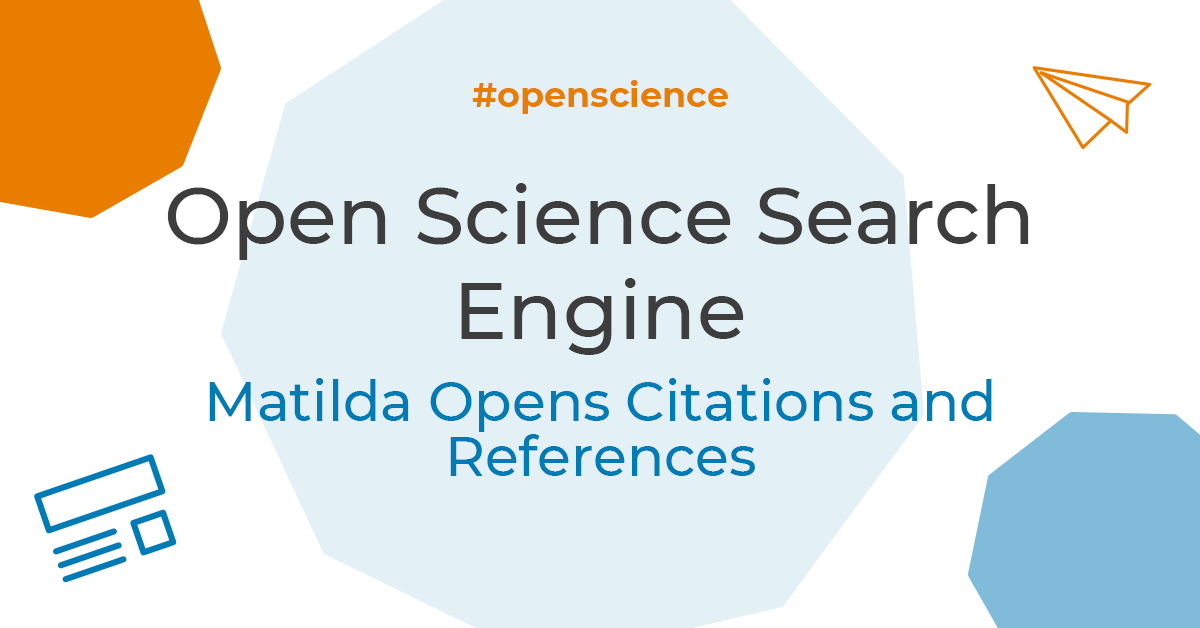Named after the Matilda effect, an Open Science search engine recently added to the Open Economics Guide’s tools catalogue helps researchers to find research works as well as the respective citations and metadata and to stay up to date. Here is a short summary and presentation of what Matilda has to offer.
Matilda is an open academic search engine and a bibliographic and bibliometric platform for Open Science. It is named after the Matilda effect which describes downplaying or overlooking the scientific contributions and achievements of women. Aiming to make references and citation data as usable as Open Access scholarly texts and datasets, the search engine adopts a principle of equal treatment of academic documents and their metadata. The tool searches more than 141 million research works and hopes to replace the bibliometric tools of commercial databases (Web of Science, Scopus) on the one hand and Google Scholar's opaque hierarchization on the other hand.
Here is how to use the tool:
The home page of Matilda contains the search bar. Here you enter your search terms and connectors.

The list of results contains the works sought. Among the metadata you will see information about citations of a work. You can sort this list and also refine your search using the available filters.

There are four types of filters you can use:
- title, type of version (for instance journal article, pre-publication, book chapter) or identifiers (like DOI, ArXiv or RePEc IDs),
- filters for author's surname and/or first name or ORCID iD,
- date filters,
- scope filters.
Furthermore you can choose to include or exclude references associated with versions in the search.
Each work listed can be viewed on one separate page which contains the details of the work and its associated versions.

There is also an author page for authors included in Matilda. The respective page contains authors' details like their ORCID iD, their affiliations and their versions.

Staying up to date with Matilda:
Matilda also offers various RSS feeds to keep you informed of changes in the data it searches.

Matilda offers to subscribe to an author's work and their citations, to the results of a search query and to citations for a publication.
Interested in getting to know more tools that help you to find Open Access literature or Open Data? The Open Economics Guide lists more than 140 free Open Science tools. Furthermore, it contains a bunch of tips, for instance on finding Open Access literature and Open Data.
